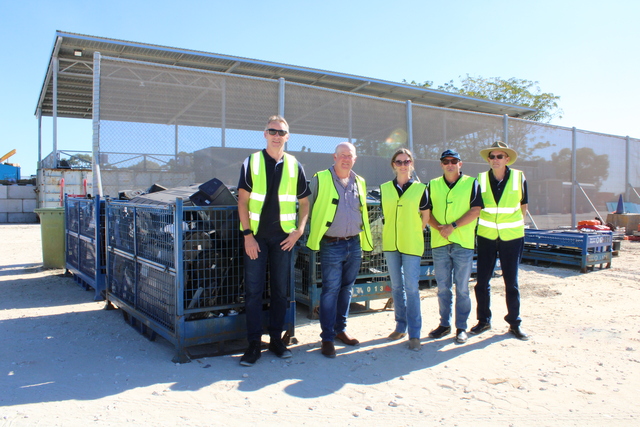An interview with Tony Goode, Director Workforce and Organisational Services, LGAQ
With the economic crisis leading to job cuts across the country, the Local Government Association of Queensland (LGAQ) is encouraging workers who have lost, or fear losing, their job to turn to Local Government for possible alternative employment.
The Association’s Director Workforce and Organisational Services, Tony Goode, said councils are always looking for skilled operators, whether they be tradespeople, plant operators, HR and payroll personnel, engineers, accountants, technicians and many other occupations.
“Councils offer secure employment, very fair wages, superior employment conditions and professional and personal development opportunities,” he said. “These factors, in addition to councils being local, meaning workers don’t need to move themselves or their families, are what make Local Government an attractive place to work. We must maintain these advantages into the future to ensure we are looked at as favourable employers.”
Tony Goode said that for Local Government, as in times of economic boom, its funding sources of rates and service charges are not variable, so it is not affected by the economic crisis in the same way as the private sector, Federal and State Government.
“While expected to still maintain our normal workforce numbers, the future will see more positions become available to keep up with projects made possible by the Federal Government’s economic stimulus packages,” he said. “Already, injections into Local Government budgets for items such as roads and other infrastructure mean more workers are needed to complete projects.”
Tony Goode said a quick examination of job vacancies currently on the LGAQ website alone show 15 councils seeking to fill more than 85 jobs.
“There are 545 other councils Australia wide with similar vacancies,” he said. “However, while the economic crisis will make it easier to fill these positions, it is not an immediate fix to the skill shortages that have affected Local Government for some time. There certainly will be a greater number of candidates interested in employment, but at times, the skills Local Government is seeking may be those that are valued by and are being retained in the private sector. For this reason, it is important for both councils and Local Government Associations to continue their established recruitment and training processes to ensure they get the right people, in the right place, at the right time.”
Tony Goode said the economic crisis will not only have implications on employment, but social issues as well.
“Councils are aware of this and are constantly looking for opportunities to engage the community on how to fix things and assist people during the crisis,” he said. “For example, councils will be looking to purchase goods and engage with contractors locally to reduce pressure on their communities and to provide opportunities for local people.”
LGAQ is calling on the State and Federal Government to look at successful traineeship initiatives from the past and reinvest in them.
“Youth employment is always a problem,” Tony Goode said. “When organisations are looking to fill positions quickly, they generally employ older workers who are already skilled. Accordingly, we can expect a rise in youth unemployment, which raises separate concerns of its own for any community.
“If we can gain funding to put young people through council traineeships, we can work with them to develop the skills they need both for council positions and those in the private sector. This will lead to lower unemployment rates of young people and increased numbers of people gaining employment after school. There will also be reduced stress on families, as more money will be coming into households and more young people will be able to support themselves.
“It supports that old idiom, which is still relevant today ‘You train in the bad times for the good times – not just train in the good times’.”







